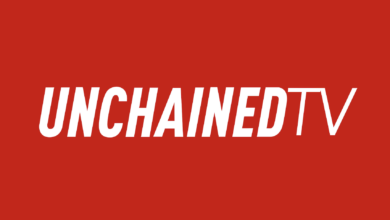Journalism’s Essential Value | The New York Times Company

What does independence look like in practice, and what choices does it require of journalists?
Prioritizing process. The most important ingredient is treating independence as a discipline, backed by processes and ethics designed to foster it. At the Times, as with many other traditional news organizations, the commitment to independence is reflected at every stage of our journalistic efforts. Our goal is to only publish what we know; we would rather miss a story than get one wrong. We correct our errors openly because mistakes should be transparent and, honestly, painful. We talk to the people we write about whenever possible and give those accused of wrongdoing the opportunity to respond. We use multiple sources to confirm information and display a healthy skepticism of everything we learn. We review pieces not just for factual accuracy but for fairness. We enforce ethical guidelines designed to prevent conflicts of interest (for example, we prohibit supporting politicians and political causes) as well as stylistic guidelines designed to minimize bias (for example, we avoid the use of partisan terminology and provocative labels in our news pages).
Language is constantly shifting, and news organizations should shift too. But one of the ways propagandists and advocates try to steer coverage to advance their agendas is to win the battle over terminology. For this reason we generally try to use the everyday language of the public, what we call idiomatic English, rather than the specialized language embraced by academics, activists, and marketers. That means typically waiting until specific terms have gained broad societal acceptance (generally using the widely recognized terms “Latino” or “Hispanic” over the little-used “Latinx”) and trying to avoid market-tested phrases that have been designed specifically to shift public opinion (generally avoiding terms like “pro life” or “pro choice” and instead describing such views as for or against abortion rights). This can be contentious—when a Palestinian carries out an attack in Israel, the Times generally calls this person a “militant” and often hears protests from one side that considers the attacker a “freedom fighter” and another that considers the attacker a “terrorist.”
As with other professions that have adopted explicit systems and ethical norms to support independence—science, medicine, and the judiciary, for example—the journalistic process described above doesn’t guarantee perfect results. Personal biases and agendas can still distort the work reporters and editors produce—just as people’s personal experiences and backgrounds can elevate it. But good journalistic processes reduce the frequency of mistakes and create mechanisms for self-correcting when we err. That stands in contrast to alternate models guided by political objectives, partisan loyalty, or, most obviously, self-interest—all of which are more vulnerable to mistakes, hypocrisy, and corruption. As with scientists, doctors, or judges, it is far better to have journalists imperfectly striving for independence backed by a defensible process than choosing not to bother because total independence can never be fully achieved. “Failure to achieve standards does not obviate the need for them. It does not render them outmoded. It makes them more necessary,” wrote Marty Baron, former executive editor of the Washington Post, in a recent essay on this theme. “And it requires that we apply them more consistently and enforce them more firmly.”
Following facts. Independent journalism can be morally straightforward and satisfying. Journalists hold power to account by exposing corruption and abuse. Journalists reveal injustice and inequality. Their work regularly leads to a society that is freer, fairer, and more just. This is the type of journalism seen in movies like All the President’s Men, Spotlight, and She Said.
Independence protects journalism from being distorted by business incentives. The fact that Harvey Weinstein was a longtime advertiser in the Times didn’t keep us from revealing the abuses that set off a cascade that ultimately landed him in prison. Independence protects journalism from being distorted by government pressure. The fact that China promised severe repercussions not long after we spent millions to launch a new Chinese-language website there did not keep us from publishing a major investigation into government corruption. And independence protects journalism from being distorted by various forms of self-interest. Even our own leaders, investors, and journalism are not immune from receiving unflattering coverage in the Times. These protections are not simply a matter of ethics and values; they are rooted in systems and processes and are reflected in the structure of the company itself—by ensuring, for example, that journalists are walled off from advertisers or that reviews of books by Times journalists are written by independent freelancers.
These commitments are widely accepted as necessary principles of an independent news organization. But a true commitment to independence—and the insistence on putting journalistic process ahead of a preferred outcome—isn’t always easy or comfortable. One of the surest signs of independence is that readers are frequently told things they don’t expect and would prefer not to hear. Take two recent examples:
For years, the Times has documented the brutal persecution of the Rohingya, an ethnic Muslim minority in Myanmar, that human rights experts have called a genocide. This was the story one of our reporters was prepared to tell when she interviewed four young sisters in a refugee camp, who recounted how soldiers burned their home, killed their mother, and abducted their father, who was now feared dead. But days of additional reporting revealed that little of what they said was true. The girls had shared heart-wrenching stories to compete for the limited attention of aid groups. In an overcrowded camp, four orphaned sisters were more likely to win sympathy than an intact family that lost all its possessions. In this case, following the facts didn’t simply confirm the larger moral truth but also exposed a smaller, less expected one: these refugees were incentivized to one-up each other in suffering to get much-needed support. And not without a cost. The reporter, Hannah Beech, later explained in her searching piece: “Such strategies are a natural survival tactic. Who wouldn’t do the same to feed a family? But false narratives devalue the genuine horrors—murder, rape and mass burnings of villages—that have been inflicted upon the Rohingya by Myanmar’s security forces. And such embellished tales only buttress the Myanmar government’s contention that what is happening in Rakhine State is not ethnic cleansing, as the international community suggests, but trickery by foreign invaders.”
A year later, on the other end of the world, an American aid convoy headed to Venezuela erupted in flames after being blocked at the border by the country’s repressive security forces. The idea that the government had ordered the torching of desperately needed supplies in the midst of a devastating famine appeared to fit the narrative of President Nicolas Maduro’s brutal authoritarian rule. Many prominent global leaders quickly denounced him. But as we reported on the calamity, video footage revealed the fire had apparently not been carried out by Maduro’s security forces; it had most likely been caused by an anti-government protester throwing an errant Molotov cocktail.
That’s the counterintuitive commitment of independent journalism. It must be open to the idea that a suffering refugee child may not be telling the truth, or that a tyrant who is persecuting millions may be accused of a crime he didn’t actually commit. In both cases, critics asked who could possibly benefit from such journalism. Society benefits, of course, since it depends on credible information to make any number of related decisions, from distributing aid to relief organizations to imposing sanctions for human rights violations. The truth benefits, too, as does the credibility of those sharing it. The next time the Times reports on Maduro’s offenses (as we’ve done here, here, and here) or the horrors that the Rohingya suffer (as we did here, here, and here), readers can be sure that those are the facts as best we could ascertain them.
This commitment to putting facts above outcome is easy to caricature as amoral, perhaps even as nihilistic. But it is grounded in a foundational optimism about people and democracy. Independent journalism is predicated on the belief that democracy is stronger when people have trusted sources for reliable facts. And that people should be trusted to comprehend these facts, process their complexity, and make up their own minds. Information empowers, and empowered people are more likely to make better decisions.
Source link



